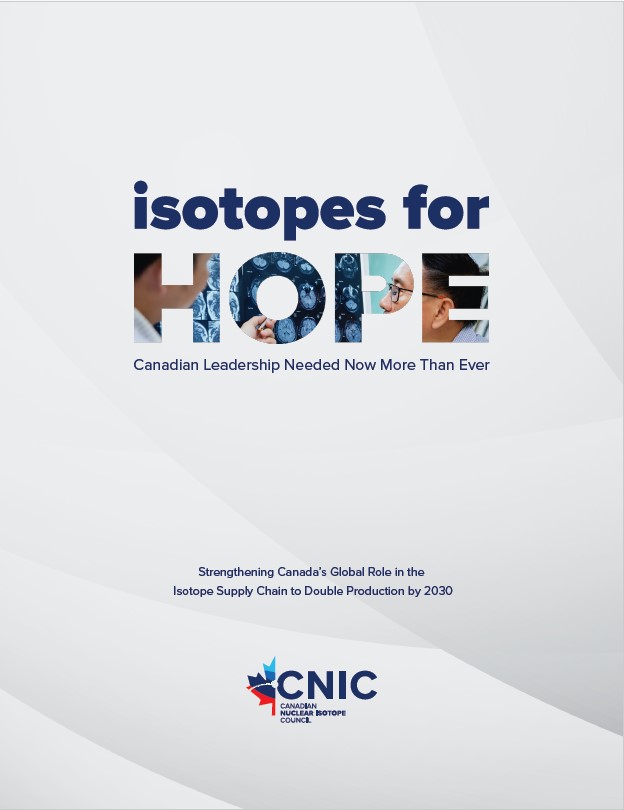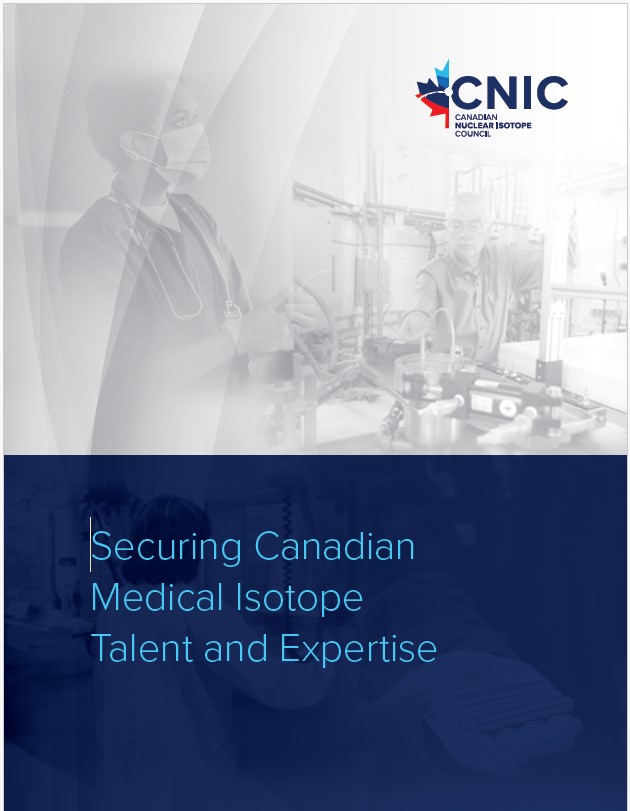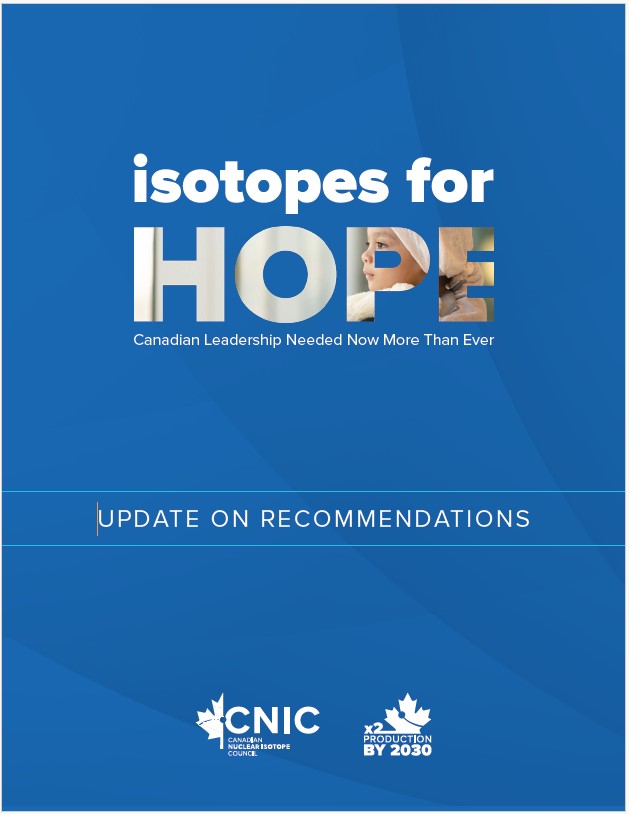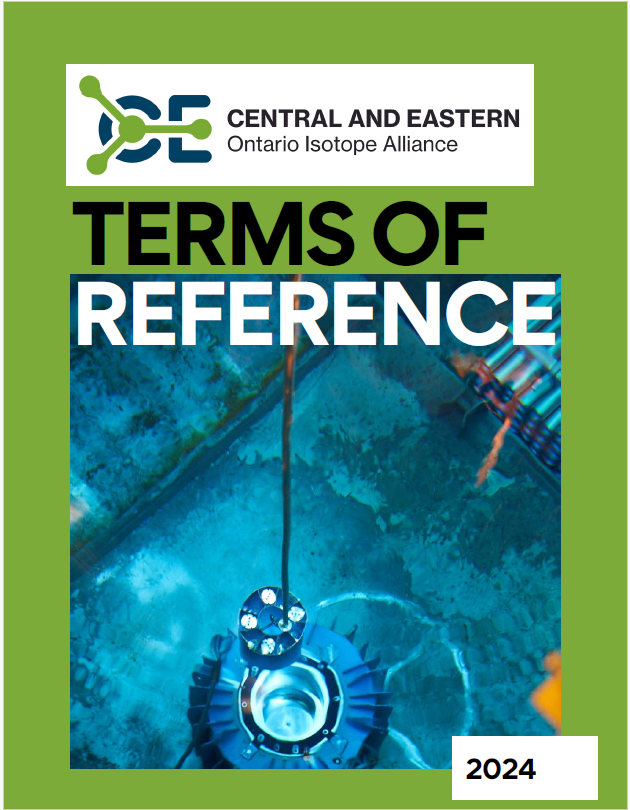Expert information on the industry.
Canada has been a leader in the research, development, and production of medical isotopes for decades, contributing to the fight against cancer and transforming patient experiences.
Considering the rising global demand for medical isotopes, Canada faces a critical juncture to build on our progress, capabilities, and expertise
and outline a bold vision for the future.
By implementing the recommendations outlined in this report, we believe Canada
can be positioned to double its production of medical isotopes by 2030.

The study, undertook by the CNIC, explores:
• What type of skilled labour is needed for the medical isotope sector?
• Are colleges and universities training
enough people and with the right skills
needed to support the industry growth?
• Is there a need for new training programs
(micro credentialling, certificate programs,
etc.)?
• How can we better support transition
between the nuclear industry and isotope
sector and vice versa?
• What is the demand for talent in this sector today, and in three and five years down the road?

In the months following the release of Isotopes for Hope, the CNIC and its members have seen growing recognition and support from all levels of government. Now more than ever, Canadians and decision-makers are aware of the essential role of isotopes to modern medicine, industry, research and
many facets of everyday life.
This progress report serves as an update to the CNIC’s advocacy efforts through the Isotopes for Hope campaign to maintain momentum and continue working toward the goal of doubling production by 2030.

The Central and Eastern Ontario Isotope Alliance (CEOIA) is a partnership among isotope irradiators and producers, related equipment suppliers, regional leaders, and medical isotope users in Central and Eastern Ontario. CEOIA works under the umbrella of the Canadian Nuclear Isotope Council (CNIC).
